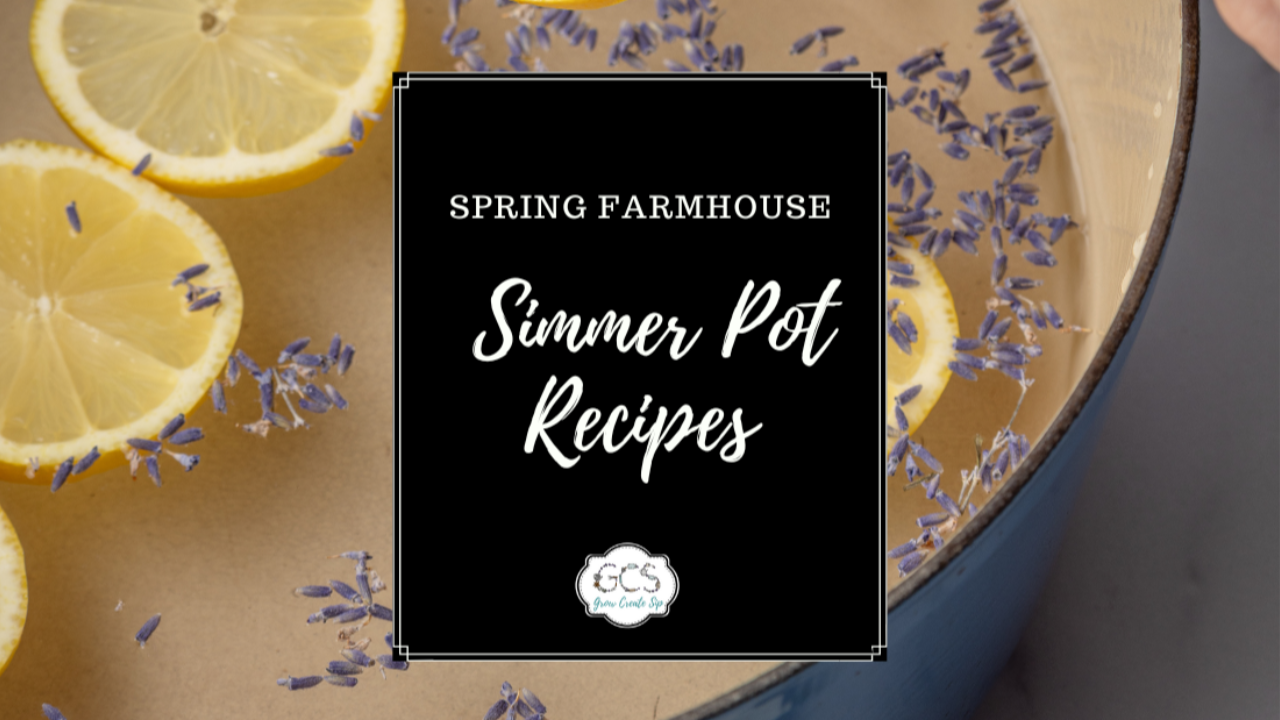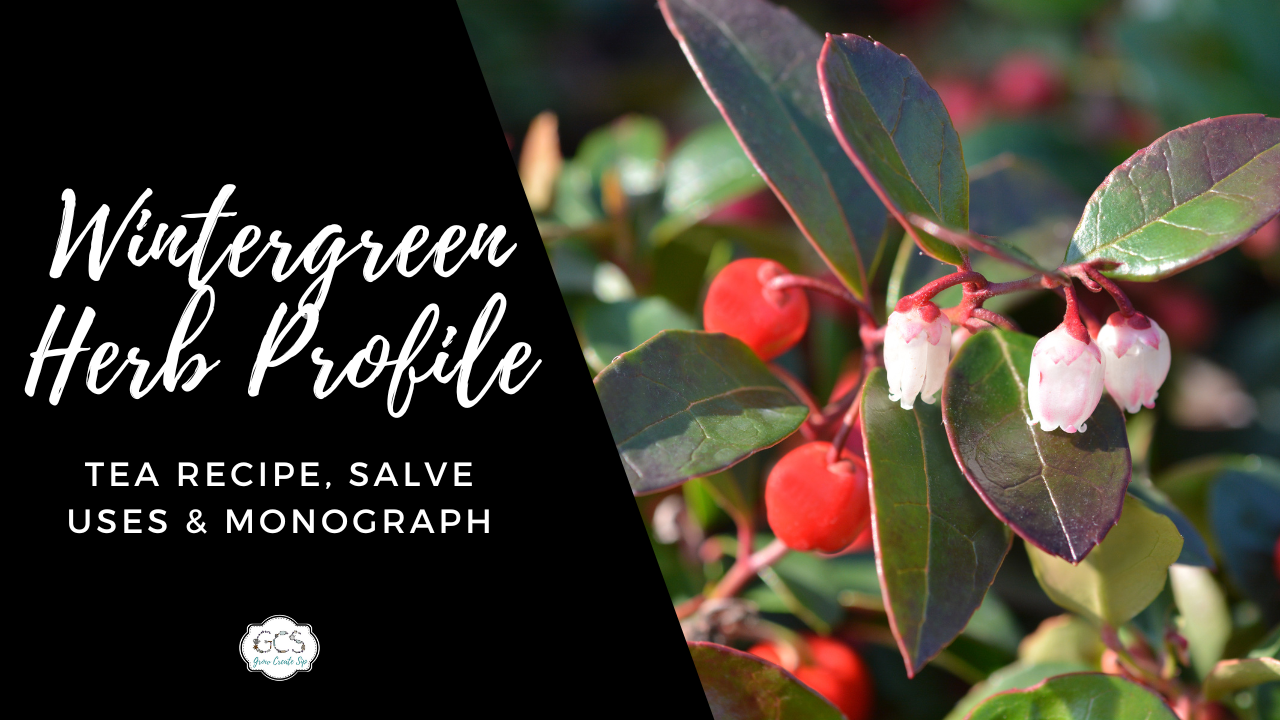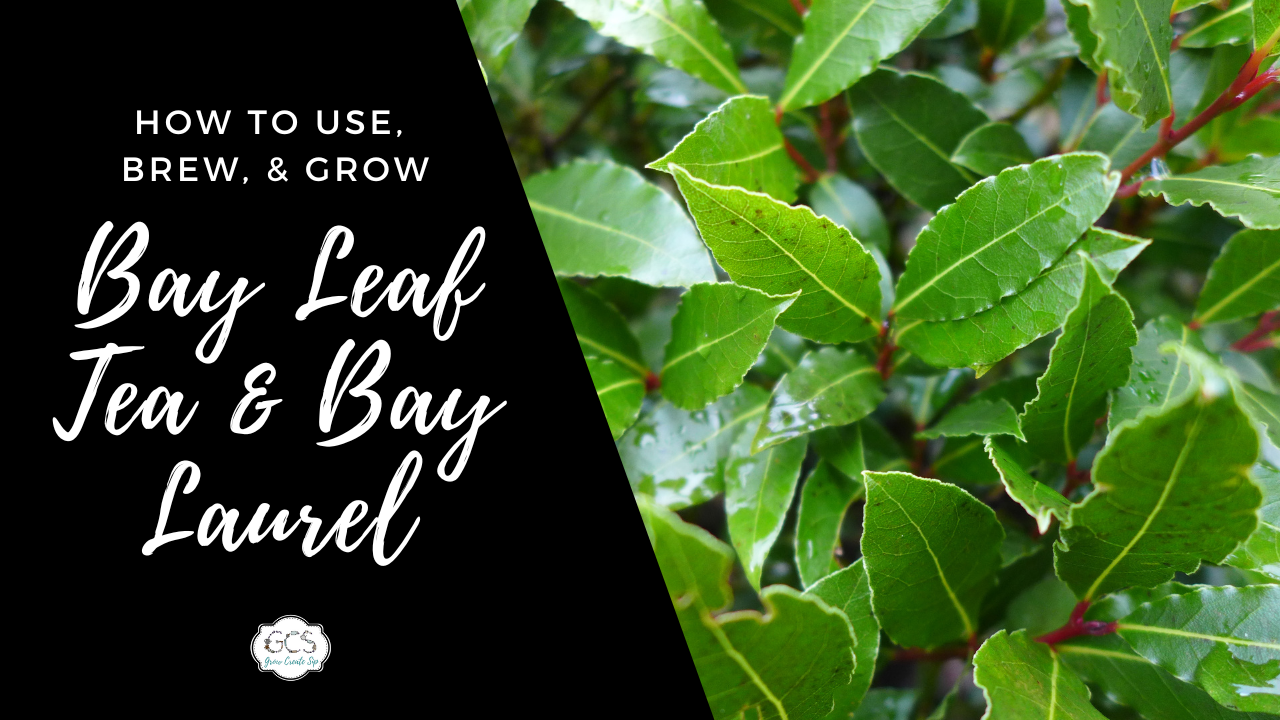Herbal Tea for Allergies (Fight Seasonal Allergies)
Jun 08, 2021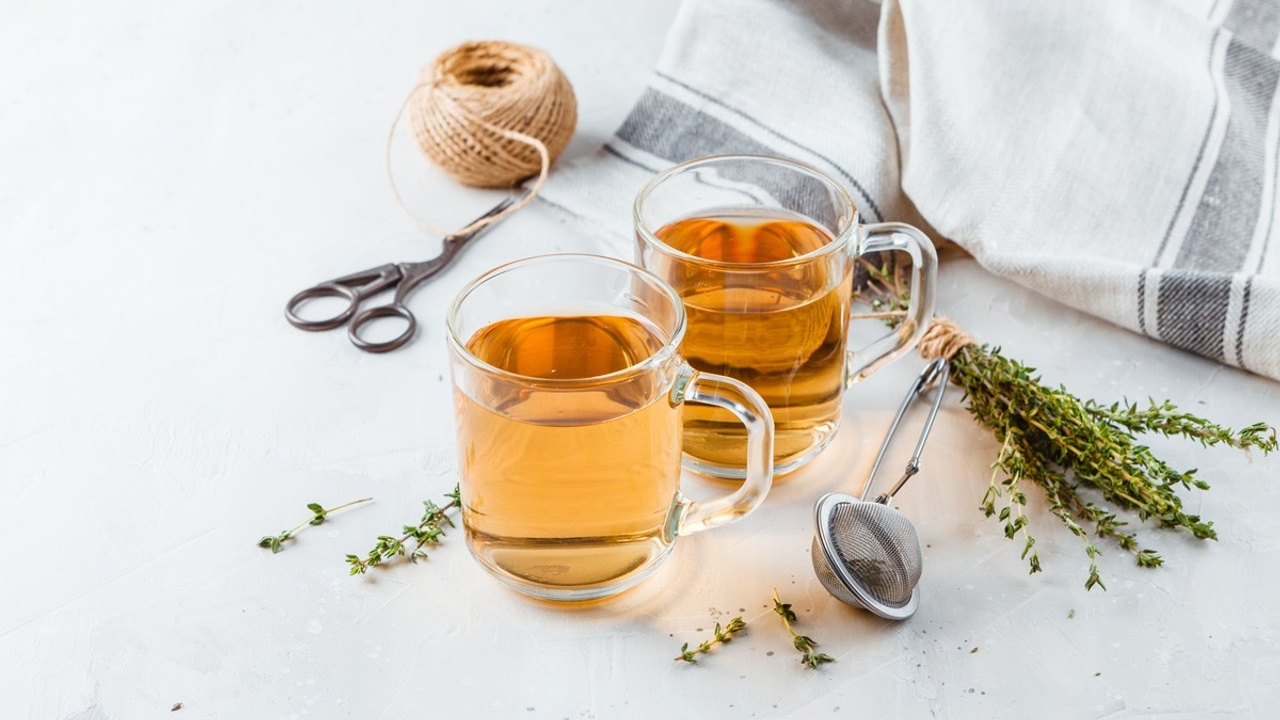
It’s inevitable, this time of year brings so many seasonal allergies from pollen, mold, and even chemicals. But did you know allergies can be an immune system response due to gut-related issues? Come learn the best tea for allergies to help get through this tough season.
Ahh, spring is in the air, and with it comes those pesky seasonal allergies! If you’ve been with us for a while you know all about the best herbs to grow for tea, our favorite allergy fighting tea recipe, and you may have even tried our roasted dandelion root chocolate truffles (talk about a delicious way to get dandelion root into your diet!).
But first things first, let’s discuss why seasonal allergies are worse for some of us than others…
What Is an Allergy?
An allergy is an immune response to allergens entering the body creating a histamine response. These can be environmental (pollen, mold, chemicals, etc) or they can be gut-related causing overactive responses from the immune system.
This usually results from poor digestive health that clogs up the lymph in the digestive tract. 80% of our immune system and lymphatic system is located in the intestinal system. So it would make sense that there are beneficial herbs we can eat that can help alleviate some of these symptoms.
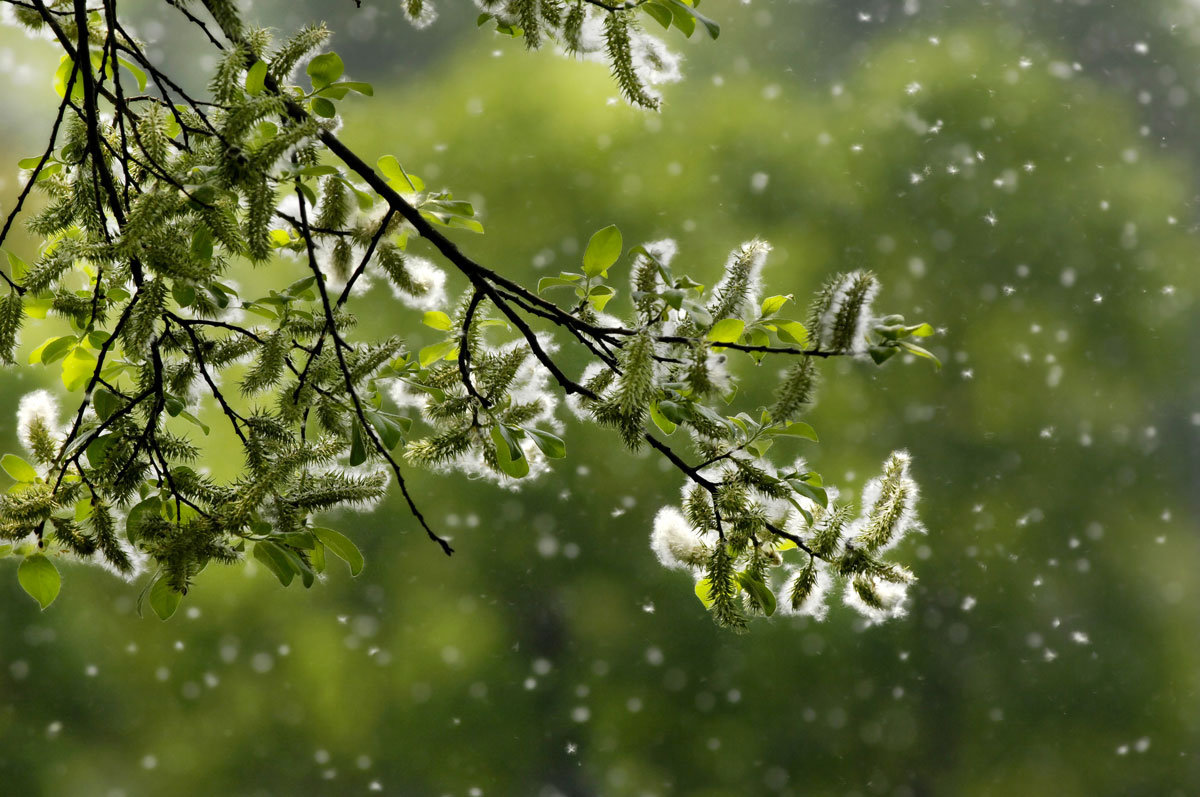
Seasonal Allergies
Seasonal allergies are those that come and go because of environmental allergens or season changes that create an immune response.
In the spring, our bodies naturally start to detox after a winter of less work and activity, due to sitting inside during the wetter and colder months.
Along with spring comes more pollen and grass seed which can create a backup in the lymphatic system as our bodies try to detox.
If you eat seasonally, your diet begins to also change at this time. We go from eating winter meals like soups, stews, roasts, and potatoes to springtime meals full of greens, salads, and other fresh foods.
This transition can be rough on a clogged digestive system, which would naturally handle the extra environmental histamines.
Furthermore, stress can cause the digestive system to become sluggish. Science is starting to show that the gut is our “second brain”. Ever get that “gut feeling”? Our brain and gut are connected and when we are stressed out, it will also affect our digestive system - our gut.
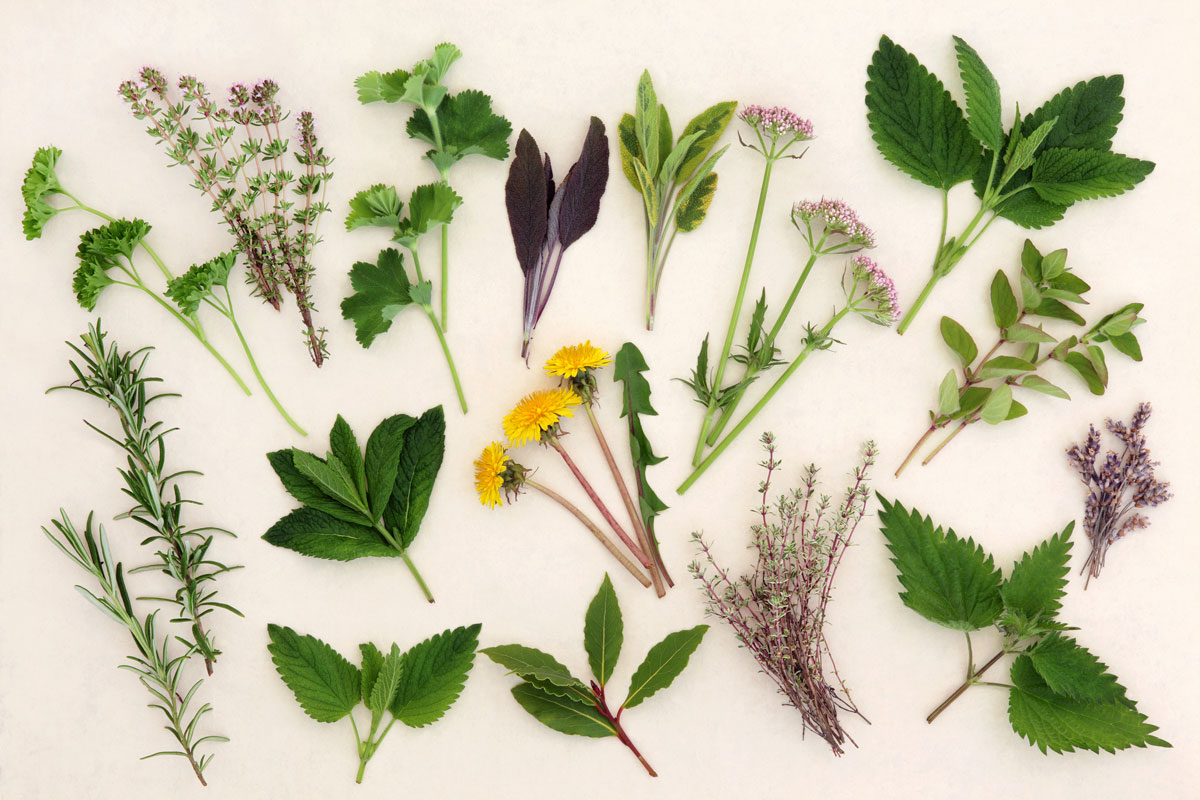
Best Herbs for Allergies
You may be wondering what herbs are best to help alleviate allergies and there are a few key things to look for:
- Herbs with vitamin C
- Herbs for Gut Health
- Immune Boosting Herbs
- Herbs for Stress & Calming
- Lymphatic Herbs
- Decongestant Herbs
Herbs with Vitamin C
Herbs that have vitamin C are full of antioxidants that boost the immune system by helping to remove toxins. They can also help the body make compounds responsible for a healthy stress response.
Herbs that are high in Vitamin C include:
- Rosehips
- Orange peel
- Hibiscus
- Cranberries
- Acerola (cherry-like fruit)
- Lemon Peel
Herbs for Gut Health
Healthy digestion is the key to your body being able to process histamines and environmental allergens.
Herbs that can help improve gut health include:
- Dandelion root
- Chicory root
- Licorice root (caution for those on blood meds)
- Marshmallow root
- Slippery Elm Bark
Immune Boosting Herbs
It’s important to consume herbs that help boost the immune system so that the body has support for dealing with histamines.
Immune-boosting herbs include:
- Stinging Nettle - packed full of nutrients
- Elderberry & Elderflowers
- Astragalus
Herbs for Stress & Calming
These herbs that help alleviate stress and promote calm are great for gut and overall health. Whether you’re dealing with seasonal allergies or not, these herbs are fantastic to sip on during high-stress situations.
Herbs for stress and calming include:
- Tulsi Holy Basil
- Lemon Balm
- Spearmint
- Chamomile
- Ashwagandha
Lymphatic Herbs
These are herbs for cleaning out the lymphatic system and removing the overactive histamine response from the onslaught of seasonal pollens and grasses.
Lymphatic herbs include:
- Redroot
- Chickweed
- Calendula
- Cleavers
- Dandelion
Decongestant Herbs
Decongestant herbs help to remove congestion caused by histamine reactions. They can help open up nasal passages and the lungs.
Decongestant herbs include:
- Mullein
- Ginger
- Peppermint
- Thyme
- Oregano
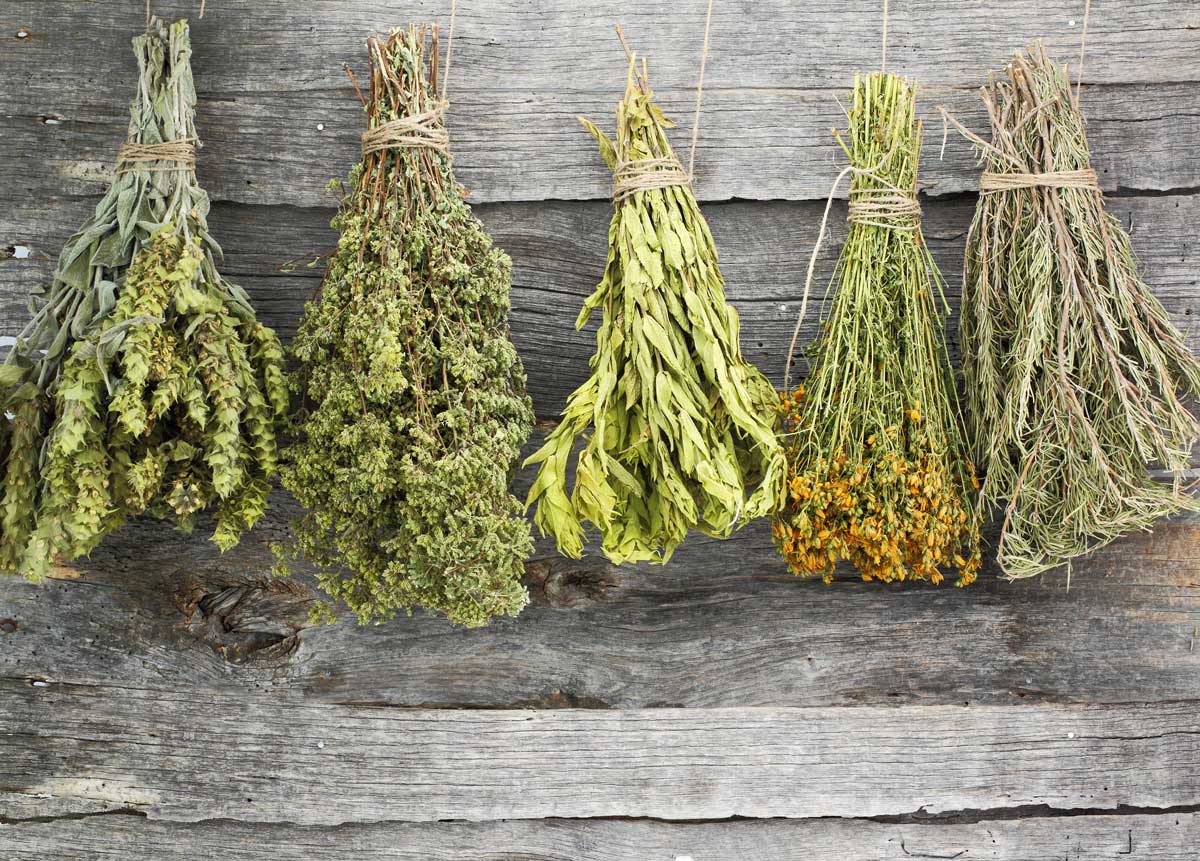
What is the best way to take the herbs & why?
You want to take herbs often, over a long period of time, and in the simplest, most convenient form that most easily accesses the body organ that needs support.
Because herbs are not pharmaceuticals they need to be taken more often. They are usually not as concentrated, depending on the form, so the quantity matters as they take longer to build up a natural response.
Herbs should be consumed over a long period of time. If you know you’re prone to seasonal allergies, it’s my recommendation to start drinking herbal tea before you begin to notice symptoms or allergic responses.
The thing we love about herbs is that they don’t force an immediate action, rather, they help the body’s own defenses get stronger to fight off allergies.
Taking herbs in the most simple and convenient form means you’ll stick with them! If you’re forcing yourself to do something that’s difficult or time-consuming, chances are you won’t take them, or won’t stick with them long enough to notice any benefits. This is why we love to drink our allergy-fighting herbs in tea form. Tea is enjoyable to drink, easy to make, and can be customized to fit your favorite flavors.
Furthermore, the herbs need to be consumed in a form that most easily accesses the body’s organ that needs support. Since allergies are gut and immune system-related, they benefit most from herbs in the digestive tract.
Hydration is also key here making tea more beneficial than taking other herbs. Hot tea can also be calming and soothing to the digestive tract and in turn aid in stress reduction.
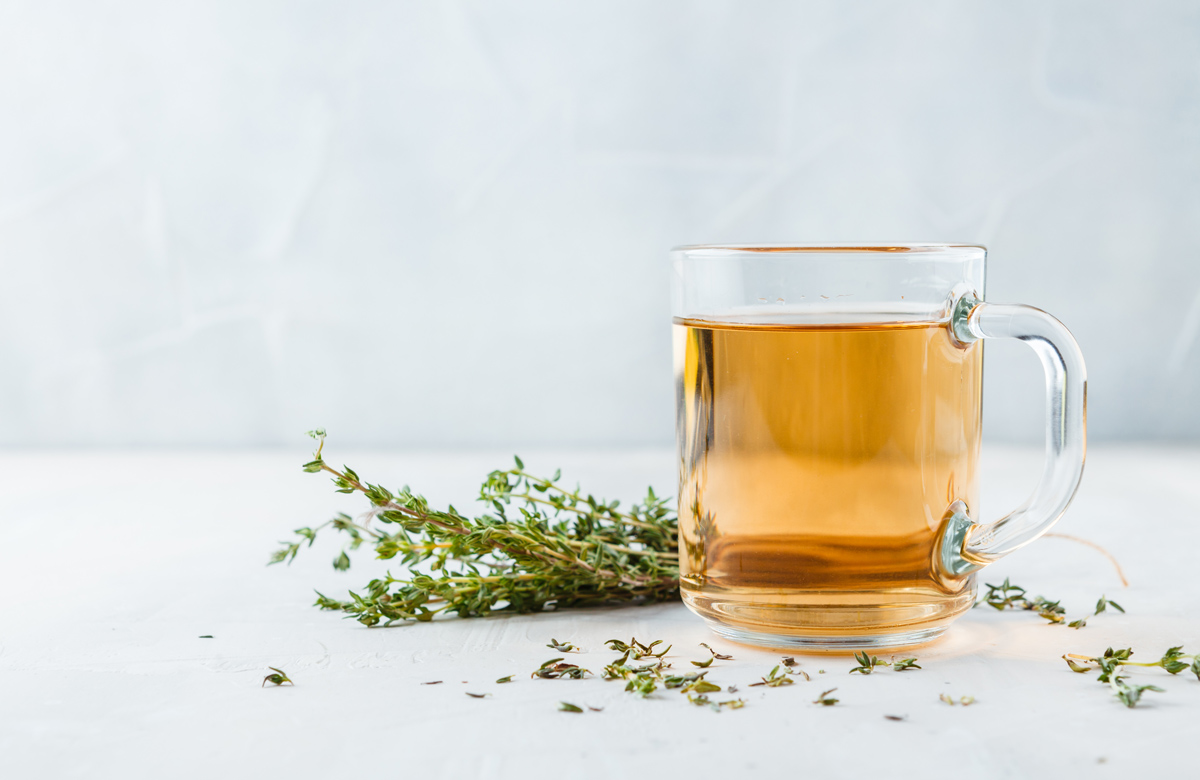
How Much Tea Should I Drink?
The amount of herbal infusing it will take to help support your body’s fight against allergies will depend on your overall health.
It’s our recommendation to start with 1-2 cups of allergy tea per day and work up from there until your body is getting the relief it needs. (As always, we’re not doctors, so please work with a certified nutritionist or practitioner when treating illness.)
How Often Should I Drink Tea?
As mentioned above, this will vary from person to person. You can start with a cup of tea once daily, then work up from there. Some people find sipping on herbal tea throughout the day is not only delicious but brings continual relief during the spring.
Other Remedies for Allergies
Stress reduction
Reducing excess stress will aid the digestive and lymphatic systems in removing toxins and not overreacting to histamines. Some helpful ways to reduce stress include:
- Having calm and quiet in both the morning and evening is helpful for our bodies to transition to and from sleep. Try reading an enjoyable and calming book!
- Putting the phone down one hour before bed.
- Going to bed at a regular time.
- Taking vacations, or even a short weekend away.
- Spending time in prayer and reading/journaling.
Improve Gut Health
You can further improve overall gut health by taking probiotics and eating prebiotic foods.
We love this Garden of Life Soil Probiotic as well as eating prebiotic foods like these:
- Dandelion greens
- Jerusalem artichokes
- Garlic
- Onions
- Leeks
- Chicory
- Asparagus
- Bananas
Remove Processed Foods & Sugar From the Diet
Removing white flour, white sugar, packaged and processed foods will go a long way in giving your digestive system a break from difficult-to-digest foods.
Try to also eat as organic as possible to limit the chemical load on the digestive system.
Get Regular Exercise
Getting regular exercise moves the lymphatic system to help with detoxification. Exercise also aids in digestion, getting things moving and in proper function.
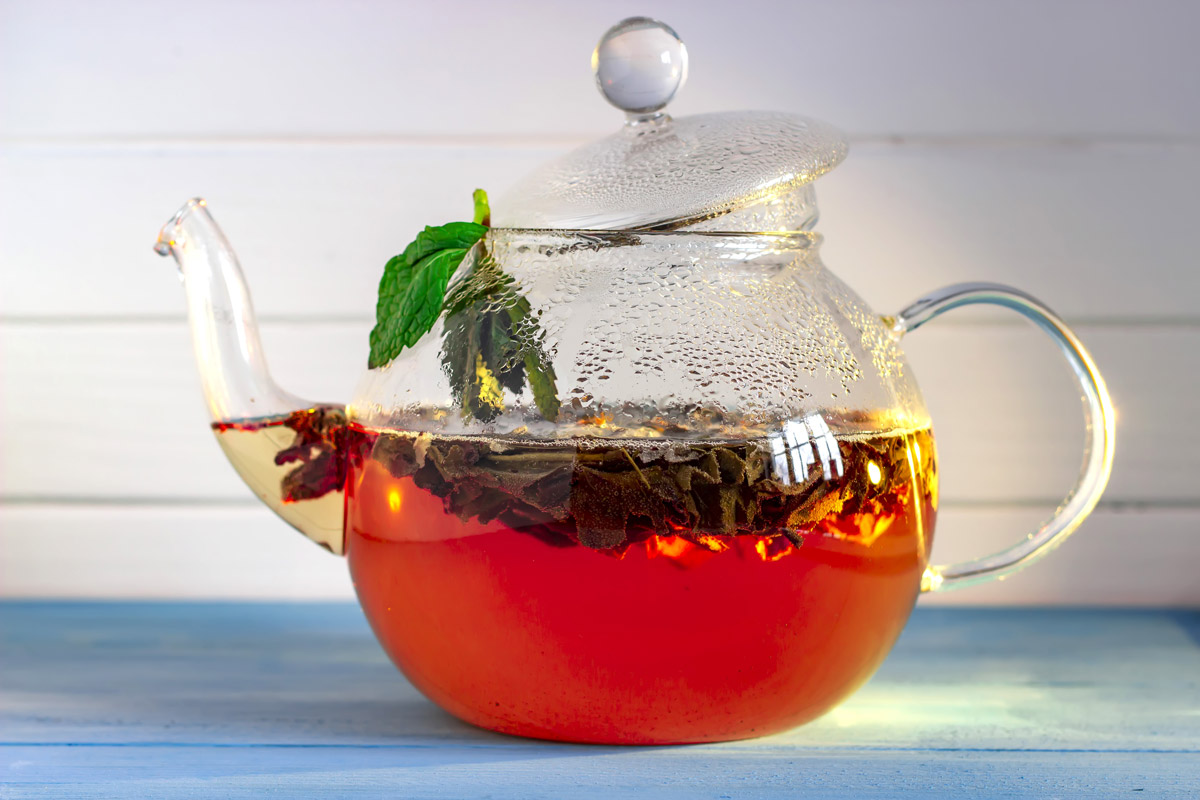
How to Steep Tea (Make an Infusion)
Herbal teas for allergies are most effective when steeped into a long and strong infusion and taken over time.
- For hot infusions: Steep 1-3 tablespoons of herb 8 oz of hot boiling water for 15 minutes to 1 hour.
- For cold infusions: steep 1 oz of herb to 1 quart of water overnight with a lid on the counter or in the fridge.
Grab our free tea steeping cheat sheets and never wonder if you’re steeping your cup of tea the right way again!
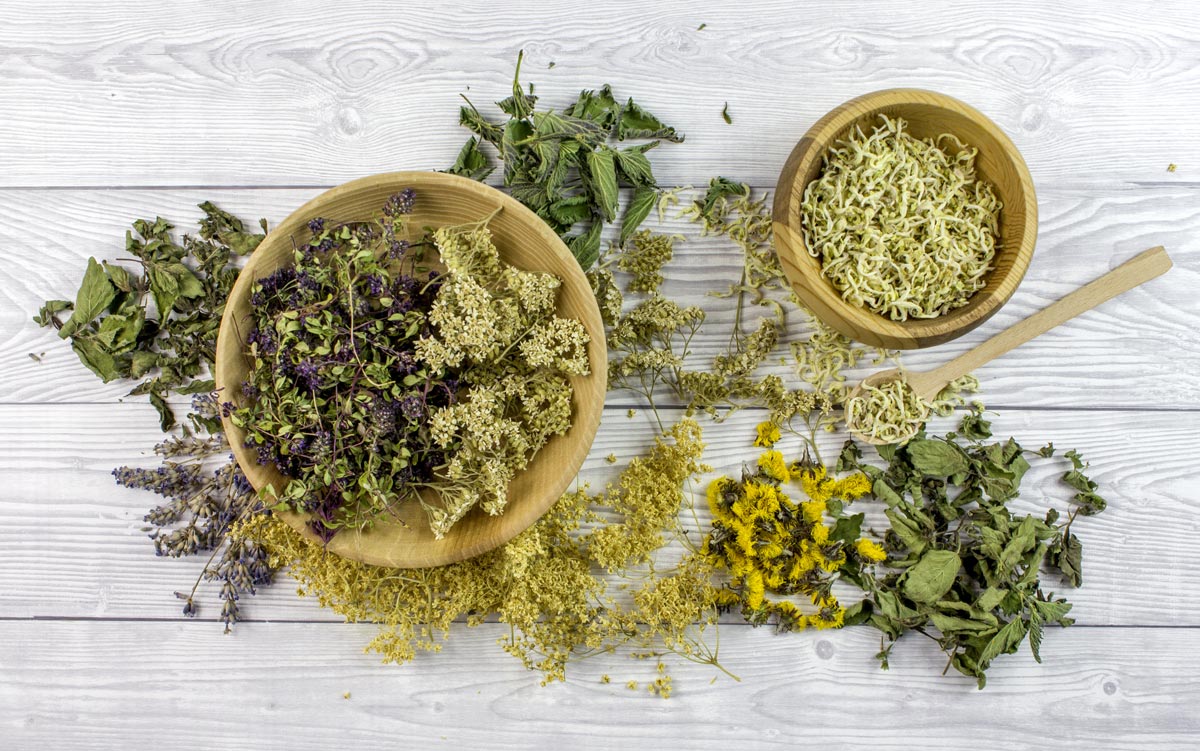
Where to Buy Allergy Tea Blends
The best allergy tea blends are the ones that are made custom for your taste preferences as well as for your individual body’s needs.
We have a free tea blending course that will teach you how to blend your own tea here!
We also have a fantastic allergy-fighting tea recipe that we love and use this time of year. You can start with this recipe and adapt it to your liking.
We also have teas with the helpful herbs listed above in our Farmhouse Teas store:
- Calm & Bright Loose Leaf Tea
- Cattywampus Canceler Loose Leaf Tea
- Sneez-Ali-Tea Loose Leaf Tea Blend
- Ma’s Tummy Loose Leaf Tea
- Nagging Noggin Loose Leaf Tea
- Lemon Ginger Gumption Loose Leaf Tea
- La Pine Licorice Spice Loose Leaf Tea
- Yodel A Tea Who Tea Blend
- Farm Maiden’s Medley Loose Leaf Tea
Be sure you also check out our must-have tea accessories to make sipping that cuppa tea extra special!









